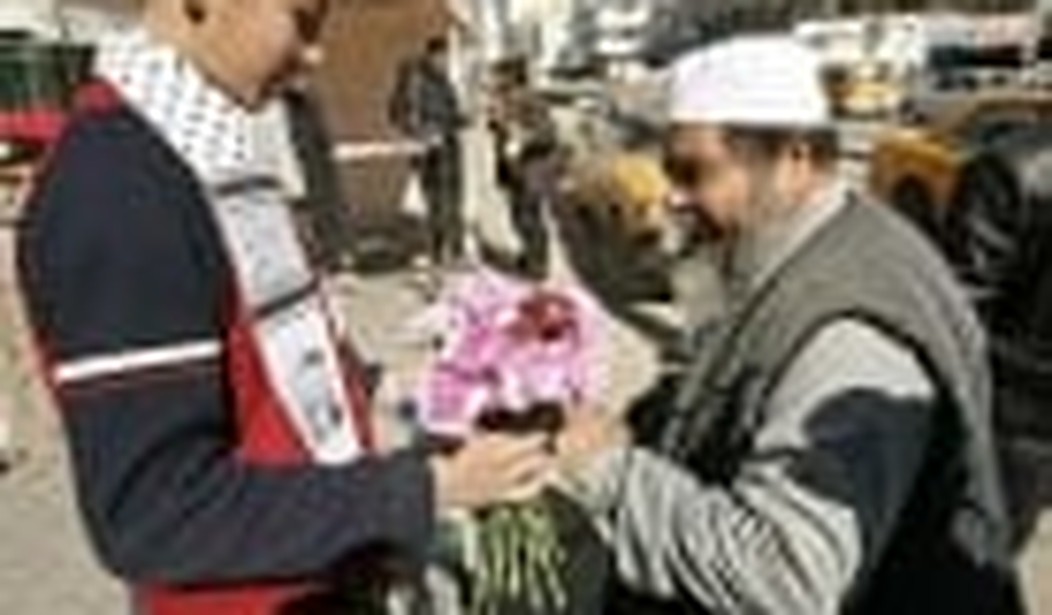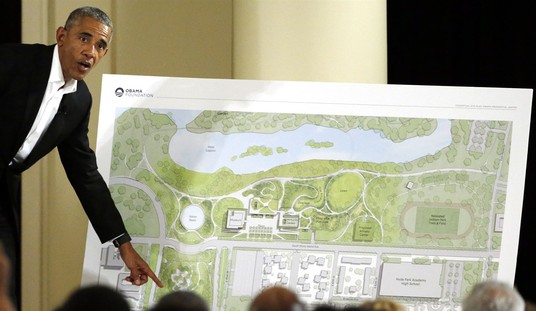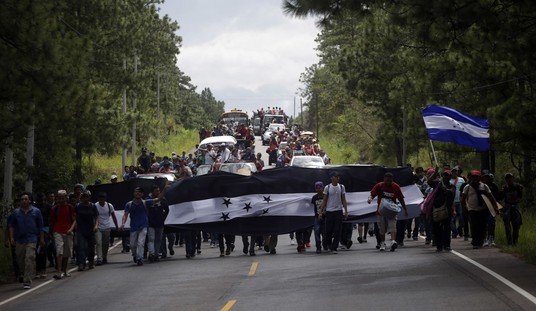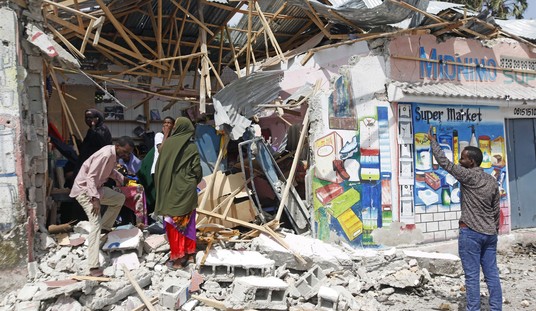The situation in Gaza is, indeed, “grim and miserable,” as the UN’s Undersecretary-General for Humanitarian Affairs, John Holmes, noted the other day. Certainly, the Palestinians living in Gaza are struggling under severe economic conditions. There is no doubt that sanctions levied against Gaza inflict hardship and deprivation on the citizens of Gaza. These sanctions include closed borders with both Israel and Egypt, reductions in electrical power and fuel deliveries, and deliveries of food supplies that keep them short of a humanitarian crisis but, by no means, allow for comfortable existence. Yet, it is not the current deplorable economic conditions, the border blockade, nor the effects of the other sanctions that make the situation in Gaza so grim and miserable. These, after all, are recent and temporary measures, creating a temporary state of hardship. No, what makes the situation in Gaza so grim is far more insidious.
It is something that will remain to plague the citizens of Gaza long after memories have faded of the months spent eating a bland diet of staples, of the inability to purchase flat-screen televisions or to spend vacations in the Sinai. It is the very culture that the Palestinians in Gaza have spent so many years carefully crafting that makes their present — and their long-term future — both grim and miserable.
The people in Gaza need to stop and take a good look at the culture and society that they are creating and begin to think hard about how they might begin to undo the damage to their social fabric that is, with every day that passes, increasing. They should begin their social re-engineering not for the sake of their Israeli enemies across the border, nor to increase their standing on the world stage, but rather for their own sakes because inculcating blind hatred, with a murderous twist, against another group has some unintended side effects for the culture that does the inculcating.
When children are raised on a steady diet of hatred, disrespect for human life, and violence, those children grow up to be violent and with no regard for the life, or well-being, of others. And not just for “those” others but for all others, including those within their own society. Parents in Gaza need to ask themselves, “What kind of person will my child grow up to be if I have taught him to celebrate the murder of a 73 year old woman by passing out candy and flowers?” as the children of Gaza did in large numbers recently when two suicide bombers managed to kill an old woman and put her even more elderly husband into intensive care.
In most countries, parents worry about what effects watching violent television will have on their children. They worry over whether they are effectively instilling values such as kindness, decency, and respect in their children so that they can grow up into productive and decent members of their societies. Most people recognize that the values instilled in childhood have lifelong implications not only for the child in question but also for the society in which he will live. Do the parents in Gaza not worry about the shape their future society will take when today’s children are being taught that the lives of other children have no value and, indeed, that those other children should be killed, as is frequently told to the children of Gaza through their children’s television programming? Do they not worry about the kind of adults they are producing when, as children, their society and the parents themselves have told them that their own lives have no value? What future accomplishments will their society attain when their children have been taught that the greatest thing they can do with their lives is to kill themselves in the process of killing others -that there is no greater accomplishment that they can achieve than to blow themselves up among groups of old women and children? What will be the face of a society in which the children have been raised to admire violence and to consider the use of a deadly weapon as a first resort in a conflict?
Imagine for a moment what Palestinian society is going to look like when the day comes when those “others” their children are taught to so hate are no longer the enemy to be vanquished. Because children in Gaza are not taught to consider peace with their enemy to be an option, consider instead a scenario in which the conflict ends with the stated goals of Hamas: they have managed to kill every Jewish man, woman, and child living in the Zionist country and returned the land to Muslim and Arab rule. Indeed, this is not only the goal of Hamas but also the desire of many average citizens in Gaza, as was made clear by the comments of a simple taxi driver in the wake of the most recent suicide bombing in Dimona, “In the name of Allah, may all of the attacks be like this. That we will exterminate the Israelis. It will be easier for us. We will reach the South, Tel-Aviv and the heart of Israel.”
Thus, envisage, if you will, that there are no more Jews and no more Jewish State. The people of Gaza have thrown the mother of all parties in celebration, they’ve danced in the streets, fired their weapons in jubilation, consumed large amounts of sweets, children have passed out flowers on every street corner — and then what? Do the citizens of Gaza think that the violence, hatred and disregard for human life, for their own lives, that they’ve worked so hard to instill in their children is simply going to disappear along with the Israelis they’ve managed to exterminate? Do they think that these children, now grown, are going to suddenly unlearn violence?
Research in sociology and social psychology has long shown that once there is no longer an external enemy to focus on, those same violent tendencies and expressions used against the enemy will bloom within a society. Violence will erupt and it will be neighbor against neighbor, family member against family member, clan against clan. The people of Gaza will be shocked, “How could this young man do such a thing to a member of his own people?” He can, and he will, because he has been taught that human life has no value, that his own life has no value, and that killing someone is a first resort. The new enemy will be other Palestinians.
If you think I am wrong, remember how Gazan treated Gazan during the Hamas coup. Remember how attacks against members of Fatah resulted in headlining stories such as “Among yesterday’s dead was a 14-year-old boy and three women, all killed in a Hamas attack on a Fatah security officer’s home.” Remember the words of a Gaza citizen, minutes before he was dragged out into the street and killed,
“They’re firing at us, firing RPGs, firing mortars. We’re not Jews,” the brother of Jamal Abu Jediyan, a Fatah commander, pleaded during a live telephone conversation with a Palestinian radio station.
Far from being “collateral damage” — that is, women and children killed by accident in the attempt to kill an armed fighter — women and children within Palestinian society can and will become the targets to be murdered by other members of their society. Recall the three little children — Palestinian children, not those “worthy of death” Jewish children -who were gunned down on their way to school as a message to their father:
Balousheh’s three children — 3-year-old Salam, 6-year-old Ahmed and 9-year-old Osama — were in the family car on their way to school when gunmen opened fire from two vehicles. The three were killed along with their driver. Doctors said one of the boys was hit by 10 bullets to the head.
It has already happened and the “real” enemy was still just across the border. It happened despite the fact that whenever a group has an external enemy to focus on they experience far greater social cohesion within their own group, far less violence and crime within their own society. When that external enemy is removed, crime and violence blossom within — this occurs in normal societies where children are not raised on a daily doctrine of violence against others. It occurs when the society does not worship death and destruction and in cultures where they do not pass out candy and flowers in celebration of the murder of a helpless old woman — so imagine for a moment what Palestinian society will look like should they get their wish.
Indeed, whether Israeli society is destroyed or a peace agreement is reached, the perhaps distant day will come when the conflict is at an end and the violence currently directed outward will come home to the people of Gaza. Yes, the situation in Gaza is grim and miserable, indeed, but the future they are creating for themselves is even more so.
Dr. Yael Kaynan is a Senior Lecturer in the Departments of Communication and Psychology at the Interdisciplinary Center, Herzliya and the Communications Department at Ben-Gurion University of the Negev. She blogs at Step By Step: Making a Life in Israel and founded Good Neighbors a group blog with contributors from around the Middle East









Join the conversation as a VIP Member